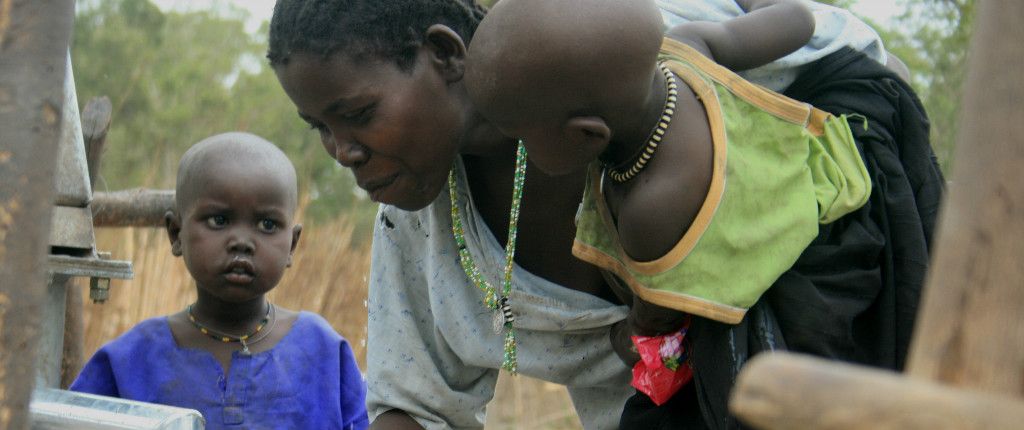
This project has been completed.
Giving leprosy patients their autonomy back
Malteser International has been supporting around 200 people in more than 60 families at a village for people with leprosy near to the central South Sudanese city of Rumbek since 2010. We were active in the region for several years, before we received a request from representatives of the leper colony in the summer of 2010 to provide help in settling land in the area. We found a suitable location in cooperation with the government.
Since then, all of the inhabitants of the village have been cured of leprosy, but the debilitating consequences of the disease continue to be seen in the hands and feet of those that it affected. Providing care and protection are especially important to avoid infection through cuts or burns. We provide hygiene training, soap, Vaseline, and special shoes to help the villagers to keep safe.
In addition, we provide families in the village with material for constructing huts, and enclosing newly planted vegetable gardens. We distribute seeds, and train the villagers in agriculture to make sure that the village can rely on a basic supply of food, and the families can make themselves independent of outside help in the long term. The villagers form a strong community that has managed to take control of their own lives.
Following South Sudanese independence on July 9 2011, hopes of rapid and positive development in the world’s newest country were dashed by the return of civil strife in December 2013. Since then, almost fifty per cent of the population has been forced to flee their homes. In August 2015, a peace agreement was negotiated, but the population remains waiting for its full and final implementation.
In the area around the city of Rumbek in Lakes State, where most settlements can only be reached from the air, malnutrition – particularly amongst children – is widespread. More than fifty years of constant conflict have cost the population most of their skills in farming. The war has severely affected the country’s economic situation, and locals are faced with extreme increases in the price of necessary goods.
Because of their illness, leprosy sufferers and their families face an especially hard time. They remain highly marginalized, and suffer from intense discrimination. They are expelled from their former communities, and their children excluded from all forms of education. Older patients in particular, who did not receive the required treatment until later on, continue to suffer from deformities in their hands and feet.
- Strengthening of local food security capacities
- Securing access to water for hygiene and cultivation
- Protection from infection in leprosy damaged extremities
- Integration of leprosy sufferers and their families into the community
- Distribution of seeds and agricultural training
- Provision of building material to secure homes and fields
- Boring of a well to provide secure drinking water
- Distribution of hygiene and care materials such as soap and Vaseline, and hygiene training
- Purchase of a grain mill
Country info
Capital: Juba
Area: 644,329 km²
Population: c. 12 million
Project data
Donors: private donations and own funds








